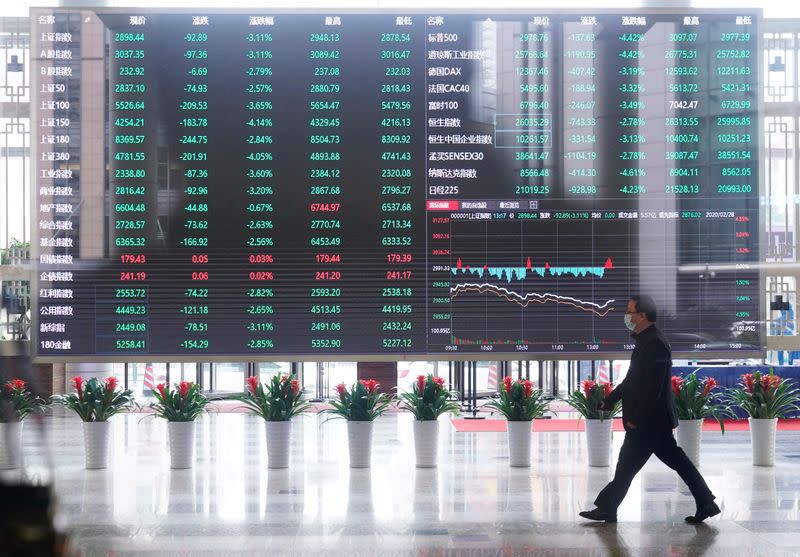Morning Bid: Global market sunshine to pierce China clouds

By Jamie McGeever
(Reuters) - A look at the day ahead in Asian markets.
Trading in Asia on Friday is shaping up to be a battle between global market strength on one side, and local caution on the other, particularly surrounding the two regional powerhouses China and Japan.
U.S., European and world stocks as measured by the MSCI All-Country index roared to record highs again on Thursday, spurred by - what else? - another surge in chip stocks. Hopes that the Fed and ECB could soon start cutting rates also boosted sentiment.
New highs for the S&P 500 and Nasdaq, a weaker dollar and lower U.S. Treasury yields should be a positive cocktail for Asian stocks. The MSCI Asia ex-Japan index will have its seventh weekly rise in eight if it avoids a 1% decline on Friday.
But concern over China's economy and deepening U.S.-Sino trade tensions are never far from the surface, and they bubbled up again on Thursday.
In Japan, meanwhile, the Nikkei slumped 1% after the yen clocked its biggest rise of the year on mounting speculation that the Bank of Japan could end negative interest rates as soon as this month.
The Nikkei has touched record highs recently so some profit-taking is to be expected. Similarly, U.S. futures market data show speculative short positions in the yen are the largest in six years, so a bout of short covering was always likely.
Japan dominates the Asian economic calendar on Friday, with the latest household spending, bank lending, trade and current account data all scheduled for release.
The news flow around China over the last 24 hours hasn't been particularly bullish for asset prices.
S&P Global warned that China's credit rating could be cut if its economic recovery remains weak or is driven largely by extensive stimulus. S&P last downgraded China in 2017 but rival agency Moody's put Beijing on a downgrade warning in December.
Beijing is fighting deflation, a property sector crash and slowing growth. The sums needed to turn all that around, as well as bail out indebted local governments, are extremely high.
On the trade front, three U.S. Senate Democrats from auto manufacturing states on Thursday urged the Biden administration to hike import tariffs on Chinese electric vehicles, the latest push by lawmakers to protect the U.S. auto sector.
With pressure growing on the White House to take further steps to prevent Chinese vehicle imports, the U.S. House Energy and Commerce committee approved legislation to vote on legislation giving China's ByteDance six months to divest from short video app TikTok or face a U.S. ban.
This is the backdrop to IMF Managing Director Kristalina Georgieva and First Deputy Managing Director Gita Gopinath's planned visit to Beijing later this month to meet with Chinese authorities and attend economic conferences.
Here are key developments that could provide more direction to markets on Friday:
- Japan household spending (January)
- Japan trade and current account (January)
- Taiwan trade (February)
(By Jamie McGeever; Editing by Josie Kao)

 Yahoo Finance
Yahoo Finance 